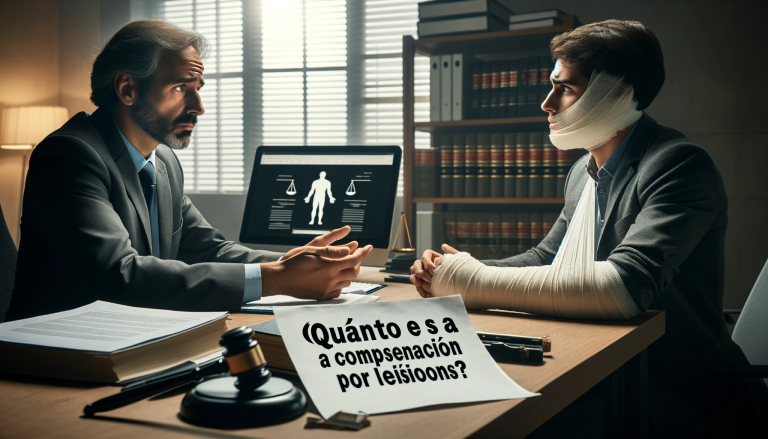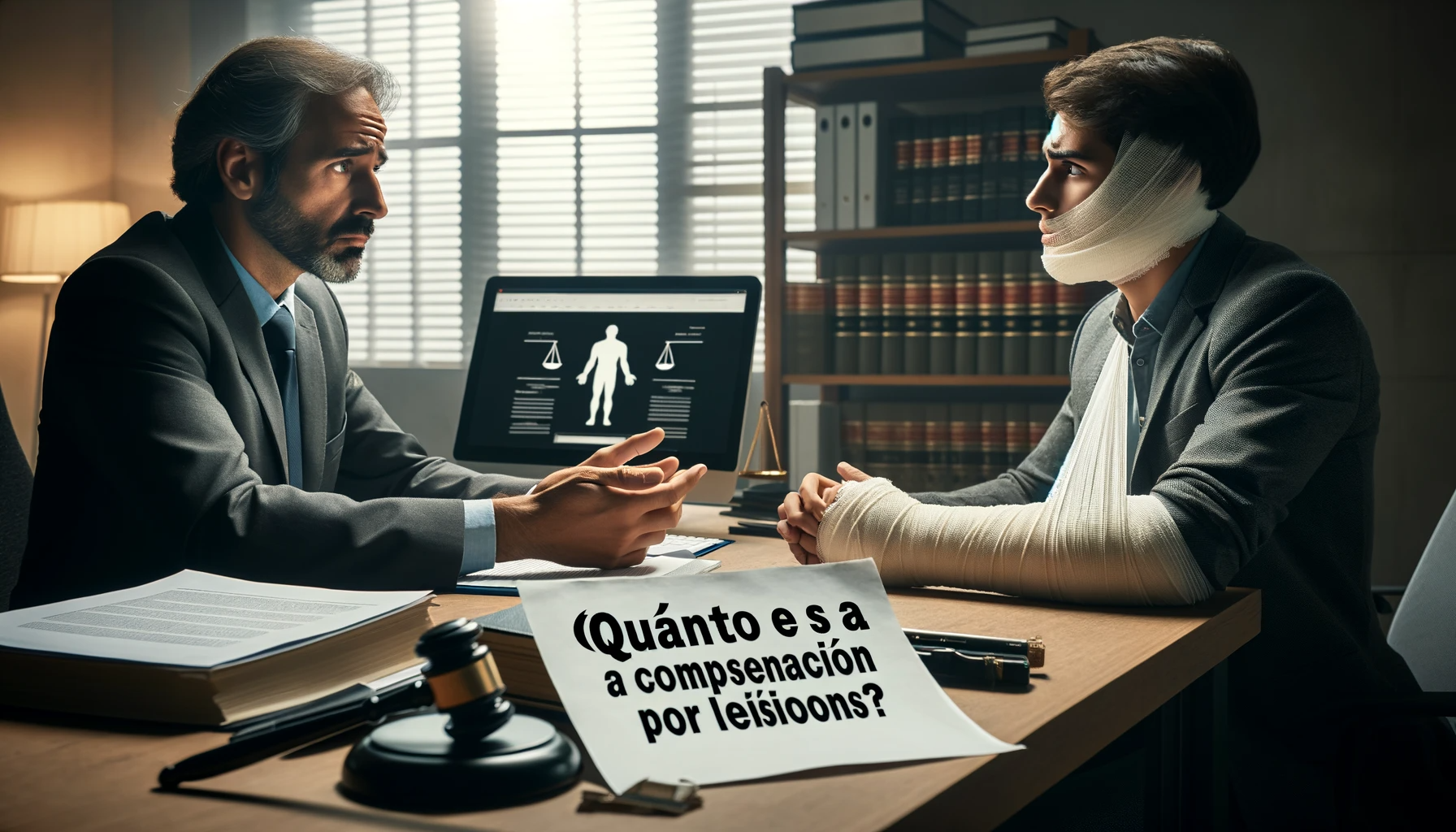Understanding Lawyer Deception: What Does it Mean?
Deception, in the context of a lawyer-client relationship, can take many forms. It is important to understand what deception might look like and the implications it carries for both the professional relationship and legal proceedings. This comprehension will allow clients to make informed decisions when they suspect their attorney might be deceiving them.

What Constitutes Deception?
Deception within a lawyer-client engagement refers to any activities that misrepresent facts, obscure the truth, or lead the client to believe something inaccurate. These actions often intentionally confuse or persuade clients to follow a course of action that may not be in their best interest.
Common Methods of Lawyer Deception
Common methods of lawyer deception include - but are not limited to - overcharging for services, hiding conflicts of interest, inventing fictitious expenses, providing false information about case progress, and deliberately failing to disclose crucial information that could affect the outcome of the case. Additionally, any form of dishonesty or manipulation to gain control over the client’s decisions or assets is considered deception.
The Consequences of Deception
Lawyer deception has far-reaching consequences. It can lead to a lack of trust between the lawyer and the client, damage the client’s case, result in unnecessary costs, or even lead to legal sanctions against the lawyer. Ultimately, it can negatively impact the outcome of the client's case and cause undue stress and anxiety.
The Legal Profession’s Stance on Deception
The legal profession categorically condemns deception and it is considered a breach of professional conduct. Lawyers are expected to adhere to high standards of honesty and integrity when dealing with clients, and there are severe penalties, including disbarment, for those who are found guilty of deception.
Recognizing Deception
Understanding lawyer deception is the first step in recognizing when it is happening. Clients should stay informed about their case and ask questions if anything seems unclear. They also need to remember that they have the right to seek a second opinion or switch lawyers if they suspect any form of dishonesty.
The Code of Ethics: Lawyers and their Responsibilities
Understanding the Lawyer's Oath
Every practicing lawyer is required to take an oath, committing them to a rigorous ethical standard. The details of this oath may vary depending on the jurisdiction, but its intent remains the same across the globe: Lawyers must uphold the law and serve their clients' interests to the best of their abilities. This requirement forms the bedrock upon which the trustworthy attorney-client relationship is built.
The Elements of the Code of Ethics
The legal profession’s code of ethics is also known as the Rules of Professional Conduct in many countries. These rules set forth guidelines that govern the behavior of lawyers. The main elements include competence, diligence, communication, confidentiality, conflict of interest, duties to the court, honesty, and integrity. Adherence to these principles helps to maintain high standards in the legal profession, ensuring that all clients are treated fairly and given the best possible legal representation.
Lawyers' Duty of Competence and Diligence
Lawyers are expected to handle all client matters with both competence and diligence. This means that they should possess the legal knowledge, skill, thoroughness, and preparation necessary for each case. They are also obligated to work diligently, making sure they invest enough time and attention into their clients' cases. Failing to provide competent and diligent services could lead to disciplinary action and harm a lawyer's reputation.
Client-Attorney Confidentiality and Communication
Confidentiality is another pillar of the legal profession's code of ethics. Lawyers are expected to keep discussions with their clients private, using these conversations solely for providing legal advice and guidance. Lawyers are also responsible for keeping their clients informed about their cases, including any developments and possible outcomes. Failure to communicate effectively or breaching client confidentiality can be serious ethical violations.
Avoiding Conflicts of Interest and Upholding Honesty
Attorneys are bound by the code of ethics to reject or withdraw from cases that may present conflicts of interest. Lawyers must be completely impartial, not allowing their personal interests to interfere with their professional duties. Moreover, honesty and integrity are essential traits that every lawyer should exhibit. Falsifying evidence, deceiving clients, or engaging in fraudulent activities go against the code of ethics and can have severe consequences, including disbarment.
Possible Signs of Deceptive Practices by Lawyers
Unjustified Legal Fees
One possible sign of deceptive practice by lawyers could be unjustified legal fees. It’s common for lawyers to charge high fees for their expertise, but if you find your lawyer demanding excessive payment without proper justification, it might indicate deceit. These fees could take the form of inflated
Hourly rates, excessive charges for paperwork, or fees for services that were never actually performed.
Lack of Communication
Lawyers have an obligation to keep their clients informed about their case. If your lawyer is rarely available, fails to return your calls or emails promptly, or doesn’t give you clear updates, they may not be as legitimate as they appear. This lack of communication can also extend to not explaining legal terms, not discussing potential outcomes of your case, or not keeping you informed about court dates and other important information.
Failure to Obtain Necessary Consent
Lawyers are required to obtain informed consent from their clients before making significant decisions regarding their case. If a lawyer makes key decisions or settlements without first discussing it with you and gaining your agreement, it’s a clear warning sign of unethical behavior.
Improper Handling of Case Files
Your lawyer should maintain proper records of your case, including retaining copies of all important documents and correspondence. If they are unable to provide these upon request, or there are discrepancies in your records, this could indicate a problem. In addition, if your lawyer refuses to return your case files upon
Termination of representation, that's definitely a red flag.
Conflict of Interest
Another potential sign of deceptive practices is when a lawyer represents a client in a matter where there's a conflict of interest without obtaining informed consent. If your lawyer is also representing another party involved in your case, or if they have a personal interest that influences their ability to represent you fairly, it's a breach of their ethical duties.
Immediate Actions to Take if You Suspect Deception
Identifying Potential Deception
The first step in handling potential deception is identifying it. You should be aware of any inconsistencies in the information shared by your attorney, whether it's about fees, case progress, or other significant details. This may include conflicting statements or unexplained discrepancies in documentation.
Document Your Concerns
Compile all of the details regarding your suspicions of deception by the lawyer. This should include any pertinent communications, questionable billing practices, or other inconsistencies you have noted. This documentation will be crucial in providing support for your claims if you decide to take further action.
Obtain Third-Party Input
Getting an objective second opinion can be very beneficial. You may wish to consult another attorney for their perspective on the situation. They can offer a fresh look at your case and may help you discern whether your current attorney is acting inappropriately.
Communicate with Your Lawyer
Once you've gathered all necessary information, it's essential to communicate your concerns with your attorney directly. Remember to stay calm and professional throughout this conversation. It’s possible there may be a misunderstanding or a simple error that can be rectified without further actions.
Report to Legal Authorities
If communication does not resolve the issue and you still believe your lawyer is deceiving you, it may be time to report your concerns to legal authorities. Depending on your location, this could be your local bar association or another professional regulatory body. Be prepared to present the evidence you’ve gathered to support your allegations.
Legal Remedies Available for Victims of Lawyer Deception
Initiating Legal Action for Misrepresentation
If a lawyer has intentionally deceived you, filing a lawsuit for fraud or misrepresentation is an option. Such claims are based on the assertion that the attorney made a false statement, the client relied on the representation, and consequently suffered harm. This legal action requires sufficient evidence, usually in the form of documentations, correspondences, or witness testimonies.
Malpractice Suits and their Grounds
Another option victims have at their disposal is to sue their lawyer for malpractice. Legal malpractice takes place when an attorney fails to provide services with the level of competence, diligence, and skill that other reasonable attorneys would under similar circumstances. To successfully prove malpractice, one must demonstrate three elements: the existence of an attorney-client relationship, attorney negligence, and resultant harm.
Disciplinary Actions by Professional Bodies
Reporting deceptive conduct to the state bar or other professional bodies is another route for victims. These associations have disciplinary systems in place to handle attorney misconduct. Once reported, an investigation is conducted. If the lawyer is found guilty of unethical behavior such as deception, penalties can range from reprimands to disbarment, depending on the gravity of the misconduct.
Alternative Dispute Resolution
In some cases, disputes between lawyers and their clients may be resolved through alternative dispute resolution (ADR) methods like arbitration or mediation. This is often a less adversarial and more cost-effective option. However, it is essential to understand that choosing ADR might mean forfeiting the right to take the issue to court at a later date.
Filing for Damages
If your case was negatively affected due to your lawyer's deception, you might be eligible for compensatory damages. This means you could potentially recover the monetary loss that resulted from your attorney’s misconduct. Keep in mind that establishing the actual amount of damages can be complex and typically requires expert evaluation.
Reporting Malpractices: Where and How to Report Lawyer Deception
Recognizing Deception by a Lawyer
Before you can report any allegedly unethical conduct, it's important to recognize what could constitute as deception by a lawyer. Mistakes and miscommunications can occur, but regular patterns of dishonesty, purposeful withholding of crucial information, or manipulating facts for personal advantage fall under deception.
Local Bar Association
Anyone who believes they might be a victim of lawyer deception can first reach out to their local bar association. It is an organization that represents and governs the lawyers in the region. Each association has disciplinary committees that handle complaints about violations of ethical rules. They have the authority to sanction attorneys who've breached professional conduct.
Filing a Complaint
Generally, you'll need to file a written complaint outlining your case and the ways you believe your lawyer acted deceptively. The description should be thorough yet concise, including all relevant facts, dates, and supporting documents such as emails, contracts, or other evidence. Remember that simply being unsatisfied with the outcome of a case doesn't necessarily mean there was deception or misconduct involved.
State Disciplinary Agency
If the local bar association does not handle your case to your satisfaction, each state has a disciplinary agency tasked with regulating the legal profession. Contact them and provide all the necessary information regarding your case. Based on the severity of the complaint, they may investigate, hold hearings, and impose penalties on the attorney in question.
Legal Malpractice Lawsuits
In some cases, you may choose to go beyond reporting the deceitful behavior and decide to file a lawsuit against the lawyer for legal malpractice. This could be a suitable path if you have suffered significant harm or financial loss due to the alleged deception. Consider consulting with another attorney to help you navigate through this complicated process. Be sure to check the limitations period in your state, as there are often specific time frames within which a suit has to be filed.
The Role of Legal Authorities in Addressing Lawyer Deception

Understanding Lawyer Deception
Lawyer deception refers to a situation where an attorney intentionally misleads or withholds critical information from their client, thereby betraying the client's trust. This is a highly unethical practice that contravenes professional conduct standards. Lawyers are required, by law, to act in their clients' best interests and maintain a high degree of candour during their representation.
Legal Measures Against Deceptive Practices
Legal authorities play a crucial role in addressing lawyer deception. Typically, this involves regulatory bodies that oversee legal professions, such as state bar associations in the US. These agencies are responsible for enforcing ethical standards in the profession and have powers to penalize lawyers who violate these norms. Legal actions against a deceptive lawyer may include fines, suspension or in severe cases, disbarment.
The Complaint Process
If a client believes that their lawyer has deceived them, they can file a complaint with the appropriate legal authority. The process typically involves submitting a formal, written complaint outlining the deceptive behavior and any supporting evidence. Once a complaint is filed, the legal authority undertakes an investigation to verify the claims. If the lawyer is found guilty, disciplinary action is taken.
Representation in Legal Proceedings
Victims of lawyer deception can bring suit against their lawyer for damages. This might require proving that the lawyer's deceptive conduct led to financial loss or other harm. In such cases, legal authorities can assist by providing guidance on watchdog organizations and suggesting experienced litigators who specialize in legal malpractice.
Preventive Measures by Legal Authorities
Legal authorities also take proactive steps to prevent lawyer deception. This includes enforcing strict admission standards for lawyers, requiring continued legal education in ethics, mentoring programs for young lawyers, and promoting transparency in the legal profession. Regular audits and inspections of law firms are other measures employed to ensure compliance with ethical standards.
Conclusion
If you suspect that your lawyer is deceiving you, it's crucial to address the issue promptly to protect your legal rights and interests. Open communication is key in resolving any concerns you may have. Consider scheduling a meeting with your lawyer to discuss your suspicions and ask for clarification on any issues causing doubt.
During this meeting, it's important to remain calm and respectful while expressing your concerns clearly and directly. Listen carefully to your lawyer's response and evaluate whether their explanation is satisfactory. If you are still unsure or unsatisfied with their response, you may need to seek a second opinion from another attorney.
Consulting with another attorney can provide you with a fresh perspective on your situation and help you understand whether your concerns are valid. Additionally, contacting the state bar association can provide you with guidance on your legal rights and options for addressing any misconduct by your lawyer.
Remember, your relationship with your lawyer should be built on trust and transparency. If you believe that trust has been compromised, it's important to take action to protect yourself and your legal interests.
Look for an attorney who has the right legal resources for your legal needs.
Contact us here on the
Warmuth Law website or through our hotline 888-517-9888.
Frequently Asked Questions (FAQ's)
1. What are signs that my lawyer may be deceiving me?
Some signs that your lawyer may be deceiving you include:
- Lack of communication: Your lawyer is unresponsive to your calls or emails and fails to provide updates on your case.
- Missed deadlines: Your lawyer consistently misses important deadlines in your case, which could negatively impact the outcome.
- Withholding important information: Your lawyer fails to disclose key details or developments in your case that could affect your legal rights or strategy.
- Dishonesty about case progress or strategy: Your lawyer provides false or misleading information about the status of your case or the strategies being pursued.
2. Can I switch lawyers if I believe mine is deceiving me?
Yes, you have the right to change lawyers at any point in your case. However, it's important to consider the potential impact on your case, such as additional costs or delays, and discuss your concerns with a new lawyer before making a decision. A new lawyer can provide guidance on the best course of action based on your specific circumstances.
3. What should I do if I discover my lawyer has been dishonest with me?
If you discover that your lawyer has been dishonest with you, it's crucial to take action to protect your legal rights. Document the deception and gather evidence to support your claim. Consider filing a complaint with the state bar association, which can investigate allegations of misconduct. Additionally, seek legal advice from another attorney to understand your options for addressing the situation.
4. Can I take legal action against my lawyer for deceiving me?
Yes, you may be able to take legal action against your lawyer for deceiving you. Depending on the circumstances, you may be able to file a lawsuit for legal malpractice or breach of fiduciary duty. To pursue legal action, you will need to gather evidence of the deception and consult with another attorney to understand the legal options available to you.
5. How can I prevent my lawyer from deceiving me in the future?
To prevent your lawyer from deceiving you in the future, it's important to take proactive steps:
- Maintain open communication: Keep regular contact with your lawyer and ask questions about your case.
- Ask questions: Don't hesitate to ask for clarification or more information about your case.
- Stay informed: Educate yourself about the legal process and your rights to better understand your lawyer's advice and actions.
- Research your lawyer: Before hiring a lawyer, research their background, credentials, and reputation to ensure they are trustworthy and experienced in handling your type of case.











